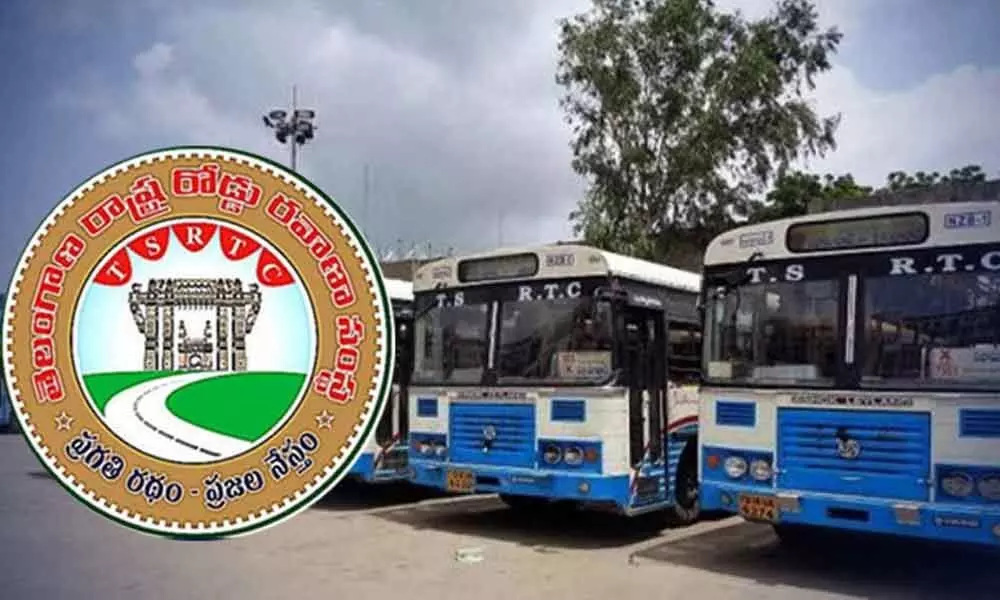Only sensible vision can end TSRTC, State stalemate

The hard stance adopted by both the striking RTC employees of Telangana and the unyielding State government, as we all know, has only landed the issue into the courts.
The hard stance adopted by both the striking RTC employees of Telangana and the unyielding State government, as we all know, has only landed the issue into the courts.
There seems to be little hope of things turning any better for the ordinary public facing the transport blues every day. Both the parties to the litigation are missing the woods for the trees.
Public transport itself, worldwide, is witnessing a transformational change. India is no exception to this change. We are also moving towards modern and efficient transport options that provide us cleaner and greener choices and at a reasonable cost.
Everything connected to it in the big picture is changing, including the road infrastructure. There are ride hailing services including two wheeler rides available nowadays in the cities.
Metro rail services have come as a great relief to urban citizens. Our airports have turned into world class in this decade and competition is vibrant in segments driven by private sector.
Here lies the crux. While the private sector tries to make profits by several cuts and prunes, the public transport system remains a mystery. Why is there this deep deficit in public transport services in the country even as the intermodal competition is picking up pace rapidly?
Why does the public transport adopt such detrimental practices? Even the employees of the public transport, including in Telangana, know the benefits of a decent transport system.
For sustaining an organisation one has to look at modern challenges. If the past is to be adhered to 'at any cost', then the organisation itself collapses and even if it continues to exist, no one respects it.
Both the government and the employees should be looking at ways to improve the system like first mile and last mile connectivity challenges.
One should also keep in mind that country's public transport needs are likely to grow rapidly as the country urbanises at a fast clip. As per Census 2011 (the population of India is 1.21 billion), which means India is about 31 per cent urbanised and cities contribute almost the maximum to the Gross Domestic Product (GDP) of the country.
It is expected that by 2030, 40 per cent of population will call cities home and are also expected to contribute to 75 per cent of the GDP.
The Ministry of Housing and Urban Affairs estimates that Rs 39,20,000 crore needs to be invested during the period 2011-31 out of which 44 per cent is to be allocated to urban roads and 11.5 per cent to mass transit systems.
High levels of investments in roads without commensurate enhancement of quality public transport leads to more personal modes being adopted.
This has several negative externalities in the form of fatalities, air pollution, congestion, etc. Telangana State cannot be immune to these challenges. Better sense is expected of everyone in concluding the strike.
Private players' entry is inevitable. Public transport in the State is already privatised. Otherwise we would not have had to see so many private buses and cab services mushrooming all around.
Politics is not going to resolve the issue, but sensible developmental vision could. Is anybody listening?










